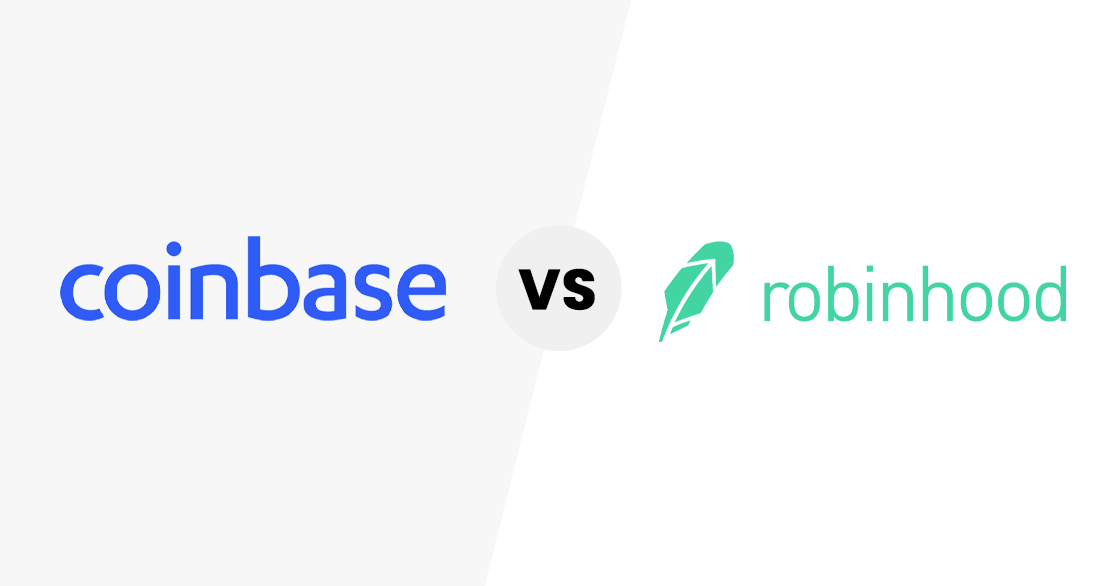When it comes to choosing the best trading platform in 2024, Coinbase vs. Robinhood is a common comparison. Both platforms have garnered significant popularity among investors, but they cater to slightly different audiences and offer unique features. In this comparison, we’ll dive into the strengths and weaknesses of each platform, helping you decide which one aligns best with your trading needs and goals. Whether you’re a seasoned trader or just starting your investment journey, understanding the key differences between Coinbase and Robinhood is crucial for making an informed decision.
Quick Comparison
In the Coinbase vs. Robinhood debate for 2024, the best choice depends on your specific trading needs. Coinbase excels with its robust cryptocurrency offerings, advanced security measures, and user-friendly interface, making it ideal for crypto enthusiasts. On the other hand, Robinhood shines with its commission-free trading for stocks, options, and cryptocurrencies, appealing to a broader range of investors looking for an all-in-one platform. If your primary focus is on cryptocurrency trading, Coinbase is the better option. However, if you seek a versatile trading experience with no fees, Robinhood might be the best fit for you.
Features
When comparing the features of Coinbase and Robinhood, each platform offers distinct advantages. Coinbase is renowned for its comprehensive cryptocurrency services, including a wide array of supported coins, advanced security features like cold storage and insurance, and educational resources to help users understand the crypto market. It also offers Coinbase Pro for more advanced trading options. In contrast, Robinhood provides a more diversified trading experience, offering commission-free trading not only for cryptocurrencies but also for stocks, ETFs, and options. Robinhood’s user-friendly mobile app and the ability to invest in fractional shares make it accessible for beginners. However, it lacks some of the advanced security features and in-depth educational resources that Coinbase offers.
Personal Experience
In my experience using both Coinbase and Robinhood, each platform has its unique strengths. Coinbase impressed me with its intuitive interface and robust security measures, providing peace of mind when trading and storing cryptocurrencies. The extensive educational resources helped me deepen my understanding of the crypto market. On the other hand, Robinhood’s commission-free trading and the ability to trade a diverse range of assets, including stocks and options, made it an attractive choice for broadening my investment portfolio. The app’s simplicity and ease of use were particularly appealing for quick trades on the go. However, I found that Coinbase offered more advanced features for serious crypto traders, whereas Robinhood was better suited for an all-in-one trading experience.
Pricing
When it comes to pricing, Coinbase and Robinhood have different approaches. Coinbase charges a fee for most transactions, which can vary based on the payment method and transaction size. These fees can include a spread of about 0.5% plus a flat fee ranging from $0.99 to $2.99 for smaller transactions or a variable percentage for larger amounts. Coinbase Pro, aimed at more experienced traders, offers lower fees based on a maker-taker model. In contrast, Robinhood is well-known for its commission-free trading on stocks, options, and cryptocurrencies, making it a cost-effective choice for frequent traders. However, Robinhood generates revenue through other means, such as payment for order flow and fees for premium services like Robinhood Gold, which offers additional features like margin trading and enhanced market data for a monthly fee. This stark difference in pricing models can significantly impact your overall trading costs, depending on your trading habits and preferences.
Pros & Cons
When evaluating Coinbase and Robinhood, each platform has its pros and cons. Coinbase excels in offering a vast selection of cryptocurrencies, advanced security features, and educational resources, making it a strong choice for dedicated crypto traders. However, its higher transaction fees can be a downside for those making frequent trades. On the other hand, Robinhood’s primary advantage is its commission-free trading across multiple asset classes, including stocks, ETFs, options, and cryptocurrencies, making it accessible and cost-effective for a wide range of investors. Its user-friendly interface is great for beginners, but it falls short in providing advanced trading tools and comprehensive security measures found on Coinbase. Additionally, Robinhood’s reliance on payment for order flow has raised some concerns about transparency and trade execution quality. Therefore, your choice between these platforms should be guided by your specific trading needs and priorities.
Alternatives
If neither Coinbase nor Robinhood perfectly suits your trading needs, several alternatives are worth considering. For cryptocurrency enthusiasts, Binance offers a robust platform with lower fees, a wide range of cryptocurrencies, and advanced trading features. Kraken is another solid option, known for its strong security measures and comprehensive support for both beginners and experienced traders. For those interested in stock trading, E*TRADE and Charles Schwab provide extensive research tools, educational resources, and a broad array of investment options, including mutual funds and bonds. Additionally, platforms like Webull offer commission-free trading with advanced charting tools and extended trading hours, appealing to more experienced traders. Each of these alternatives comes with its unique set of features and pricing structures, allowing you to find a platform that aligns perfectly with your trading preferences and goals.
Other relevant categories
Beyond basic features, pricing, and security, several other relevant categories can help distinguish Coinbase and Robinhood. In terms of user experience, Coinbase offers a sleek, intuitive interface that is particularly user-friendly for crypto newcomers, while Robinhood’s minimalist design makes it easy for users to quickly navigate and execute trades. When it comes to customer support, Coinbase provides extensive help resources and dedicated support channels, though response times can vary. Robinhood, on the other hand, has faced criticism for its customer service, particularly during high-traffic periods. In terms of educational resources, Coinbase stands out with its comprehensive learning materials and tutorials that reward users with crypto for completing courses. Robinhood offers basic educational content but falls short in comparison. Security is another critical category: Coinbase employs top-tier security measures, including cold storage and insurance coverage, making it a safer choice for storing large amounts of cryptocurrency. Conversely, Robinhood provides standard security features but lacks the advanced protections that serious crypto investors might require. These additional categories can be crucial in determining which platform best fits your specific needs and priorities.
Conclusion: Who is the winner?
In the Coinbase vs. Robinhood debate for 2024, the winner ultimately depends on your specific trading needs and goals. For cryptocurrency enthusiasts, Coinbase emerges as the top choice due to its extensive selection of cryptocurrencies, advanced security features, and comprehensive educational resources. It is particularly well-suited for those who prioritize security and are looking to deepen their understanding of the crypto market. On the other hand, Robinhood stands out for its commission-free trading across multiple asset classes, including stocks, ETFs, options, and cryptocurrencies, making it ideal for a broader range of investors seeking an all-in-one platform with low costs. Robinhood’s user-friendly interface and accessibility make it a great choice for beginners and those who want a straightforward, cost-effective trading experience. Ultimately, if your primary focus is on cryptocurrency trading, Coinbase is the better option. However, if you seek a versatile trading platform with no fees, Robinhood might be the best fit for you.



